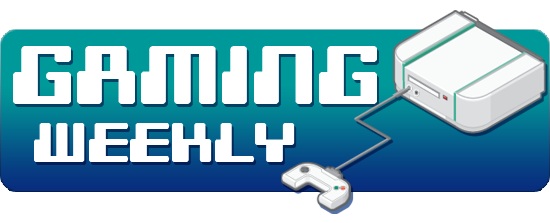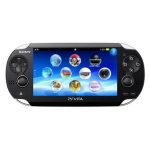

It’s not been a fun week for the blokes at Nintendo, as the impact and subsequent reaction to the 3DS post-release has caused ripples in the normally calm (metaphorical) pond that represents the company’s stability.
Financial risks to the company include price drops for current gen consoles, reported losses on current gen consoles and Nintendo’s first announcement of a loss following the release of the Wii in 2006, although some outlets report this as the first announced loss for Nintendo in the company’s history.
Trouble…
The first of the Nintendo’s troubles came with the release of the 3DS earlier this year. A Nintendo spokesperson recently confirmed that the console only shifted 710,000 units in the three months prior to July, resulting in a Nintendo Europe spokesperson revealing that.”We can confirm that Nintendo of Europe will be reducing the European trade price of Nintendo 3DS to retailers by around a third from 12th August 2011, as part of a global trade price reduction initiative,”
This announcement confirms suspicions that a global price drop, a drastic price drop even, is coming down from the company’s Japanese headquarters. Apparently, the price of both European and US 3DS consoles is going to drop radically, by roughly 30% as is reported currently.
US costs are going to drop from $250 USD down to just $170 USD (Prices rounded up to the nearest 10), meaning a massive saving is going to be made by customers on the device. Reports coming in from UK outlets point at the price in that region is set to drop from around £160 to as low as £120.
Additionally, purchasers of the 3DS prior to the price drop are set to receive 20 free games for the up and coming virtual console service on the device.
“So that we will be able to create momentum for Nintendo 3DS and accelerate its market penetration toward the year-end sales season, when the line-up for the applicable software shall be enriched, the company has decided to make this markdown.” Nintendo said.
Market Reaction
Public and economic reaction to the announcement of the company’s ¥37.7bn (£297m) first quarter loss heralded a 13% drop in Nintendo shares on the day of the announcement, with as much of a drop as 20% before the market closed for the day, with critics and market analysts forecasting potential big earns for the 3DS in mid-term sales, although some believe that the whole DS concept has been milked dry in terms of customer interest due to multiple iterations of the console.
“The timing of the 3DS hardware price cut is surprising, given the major in-house software releases,” said Hiroshi Kamide, a member of JP Morgan, an American multinational financial concern.
“We believe the 3DS will be a heavy weight on earnings over the medium term,” he added.
JP Morgan also altered its financial rating of Nintendo from “overweight” to “underweight,” citing that the current situation turned out ‘worse than feared’ and the forecast as ‘uncertain’.
Potential Reasons
The announcement of the loss can be attributed to recent global socio-economic changes, lack of available triple A content and market competition from older handhelds that have held their popularity.
Lack of available blockbuster content for the new 3DS came as an obvious issue for the console’s continuing lack of market punch.
“During the three months ended June 2011, for the Nintendo 3DS The Legend of Zelda: Ocarina of Time was launched and favourably received, but Nintendo had few other hit titles,” Was a point made very clear in Nintendo’s subsequent PDF release.
“As a result, the worldwide sales of Nintendo 3DS hardware and Nintendo 3DS software were 0.71 million units and 4.53 million units respectively.”
Apart from the earthquake/tsunami/radioactivity issues earlier in the year affecting the company’s cash flow, Nintendo points at high costs for research and development on the 3DS and Upcoming Wii U as a contributing factor in the company’s current problematic period.
The Future
A landmark in the company’s history, the first loss of profit has caused the company to radically change its marketing strategy concerning hardware. Traditionally profiting from both hardware and software, the price drop on the 3DS has heralded the handheld as possibly Nintendo’s first handheld console that makes a loss on every unit sold.
The company can afford to make up the money lost on hardware with game licensing fees when times are tough for console sales, but the new strategy could result in more licensed-by-Nintendo games that don’t either sell or get received well, further damaging the company’s reputation. Although they would be the most necessary evil needed in order to keep the company afloat at the current time.
With speculated turnaround on the lacklustre sales of the 3DS in the mid-term and general dissent in the financial market and the NASDAQ, it’s going to take a successful Wii U release and upped 3DS sales to bring a currently floundering Nintendo back up the proverbial well into the light.
With the company boasting of the power and usability of their upcoming Wii U, confirming its power matching and potentially surpassing that of the PS3 and Xbox 360 and releasing developer kits into the hands of game publishers and developers, the company looks to be getting settled in for a long and decidedly unsettled period, followed by a make-or-break release of the Wii U.
Expect more. Right here.

Remember those cynical, jaded old bastards on gaming blogs and sites a couple of years ago, decrying the PSP for ‘being shit’ and the like?
They’re kicking themselves now, as the original PSP, in Japan most prominently, is going through a kind of christlike resurgence, as prices drop and sales rocket up, even beyond Nintendo’s 3DS.
For an old-school handheld, packing just 32mb of RAM, it’s not a surprise that Sony’s caught onto the late, late success of its console compared to Nintendo’s brand new one.
In a bid to probably save some dough after the hacking debacle crippled their finances, Sony has decided to reduce the onboard RAM of the new PS Vita from 512mb to 256mb. The company will then pass the savings onto the customer in order to boost firsthand sales on the console’s release.
“Remember, more hardware features means more costs for buying the handheld. Our main interest is for Sony to sell a lot of [PS Vita] units. Clearly the Sony guys in Japan have a tough job of what to leave in and what to leave out.” Said Dani Sánchez-Crespo, CEO of PSP games studio Novarama.
If the old PSP is still going strong on 32mb, I wonder how the new Vita will sell next year with a whopping 256mb.

In an interview with Edge Magazine, Saber Interactive CEO Matthew Karch was asked whether the up and coming game his studio is working on, Halo: Combat Evolved Anniversary Edition, was going to remain true to it’s PC fanbase by seeing a release on the old desktop too.
Karch wasn’t specific with his answer but said: “It’s not something that’s happening at the moment, but I wouldn’t be surprised if it did.
“One of the reasons Microsoft decided to work with us is because the tech was strong, and this game’s a lot about execution,” he added. “And as we work more with those guys we see a lot of opportunities, and I hope they do, too. We’ve had a lot of positive press. This is how remakes should be done. We’ve put as much effort into it as a full game.”
Halo: Combat Evolved Anniversary “takes the past and makes it better”, a strong quote from Dan Ayoub, executive producer at Microsoft’s 343 Industries.
Essentially a re-skin over the existing Halo engine, the HD update allows players to touch a button and toggle updated or classic graphics over the revolutionary first entry in the blockbusting Halo franchise.
The fact that the original Bungie engine for the game still exists behind the new and old graphics, albeit with slight tweaks, could mean a new PC port to update the existing one made by Bungie alongside Gearbox could be possible, since the game has already been made compatible with PC operating systems.
Console gamers can meanwhile rejoice at this little nugget of info: Kinect support for console versions is coming. Microsoft sez: “[Kinect Support] will not affect the core gameplay experience or alter our mission of delivering a faithful recreation of the original game”.
In the mean time, A DEMO, Courtesy of Eurogamer!
Video: Halo Anniversary Rundown
